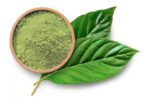A standard argument for outlawing drugs is that such substances are “addictive.” As a matter of science, this claim is often over-stated: using alcohol, caffeine, cigarettes, or heroin a few times does NOT generate physiological or psychological dependence; such effects kick in only after repeated, long-term use (and even then, far from universally). That said, all these substances – and many more – can indeed be addictive.
So for those who believe government should ban “harmful products,” the question should not be whether a substance is addictive but whether long-term, heavy use harms health, productivity, or other aspects of life. I will not discuss this issue here for alcohol, tobacco, or heroin, other than to suggest that the two substances with the worst sides effects from regular use (cirrhosis for alcohol and lung cancer for cigarettes) are currently legal while heroin, with much less obvious or dramatic side effects, is not. So much for rational public policy.
Instead, as illustration of misguided thinking about addiction, consider this passage from a recent New York Times article:
Ms. Pankova grew addicted to the beverage itself. She drank more and more, awakened her cravings for the stronger high of heroin, and relapsed. Only during another stay in rehab did Ms. Pankova learn that the drink’s primary ingredient, a Southeast Asian leaf called kratom, affects the brain like an opiate and can be addictive, too.
Nowhere does the article cite evidence that Kratom addiction has large or common side effects; rather, the article takes as given that addiction is undesirable per se. That makes no sense, as the caffeine example shows.
So if some people prefer Kratom addiction to heroin addiction – or vice versa – why should policy interfere?
Jeffrey Miron is director of economic studies at the Cato Institute and the director of undergraduate studies in the Department of Economics at Harvard University. His area of expertise is the economics of libertarianism, with particular emphasis on the economics of illegal drugs.




